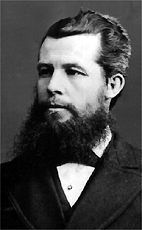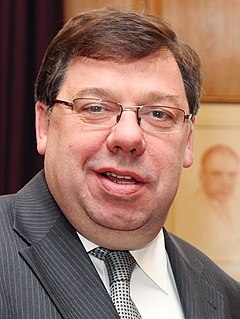A Quote by George Haddow
They're trying to say that greater federal authority would have made a difference, ... The reality is that the feds are the ones that screwed up in the first place. It's not about authority. It's about leadership. ... They've got all the authority already.
Quote Topics
Related Quotes
The notion of the enduring authority focuses on the fact that some people think that notions like authority of Scripture's is passé, while others say that the present configuration of the doctrine of inerrancy is a late addition. And to both we want to say, No we're talking about the enduring authority of Scripture, grounded first and foremost in its relevatory status, something given by God and utterly reliable.
Criticism does demand a certain kind of authority, but what about the authority of not really being sure what you think? What about the authority, the authenticity that comes from bringing all your intellectual, emotional and spiritual equipment to a piece of art or entertainment whilst still being uncertain and confused?
Hopefully that will be seen as a response, a leadership responding to an issue and therefore one's authority, while it's not as high if you didn't have the problem, it does mean that people say 'well he used his authority to come up with a solution in double-quick time that met with broader public acceptance.'
...[sacred] doctrine is especially based upon arguments from authority, inasmuch as its principles are obtained by revelation: thus we ought to believe on the authority of those to whom the revelation has been made. Nor does this take away from the dignity of this doctrine, for although the argument from authority based on human reason is the weakest, yet the argument from authority based on divine revelation is the strongest.


































